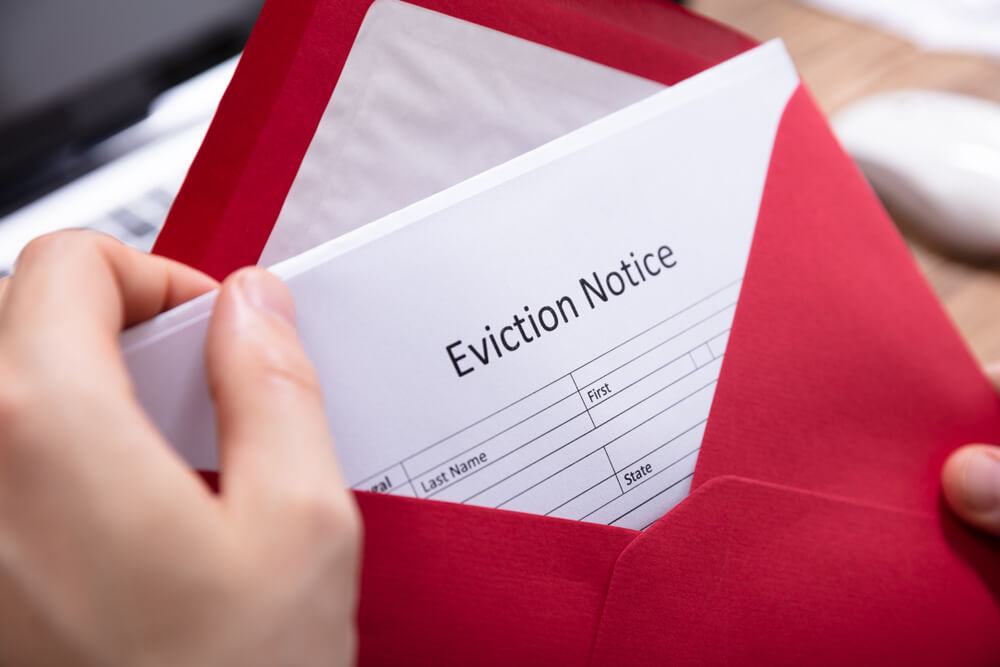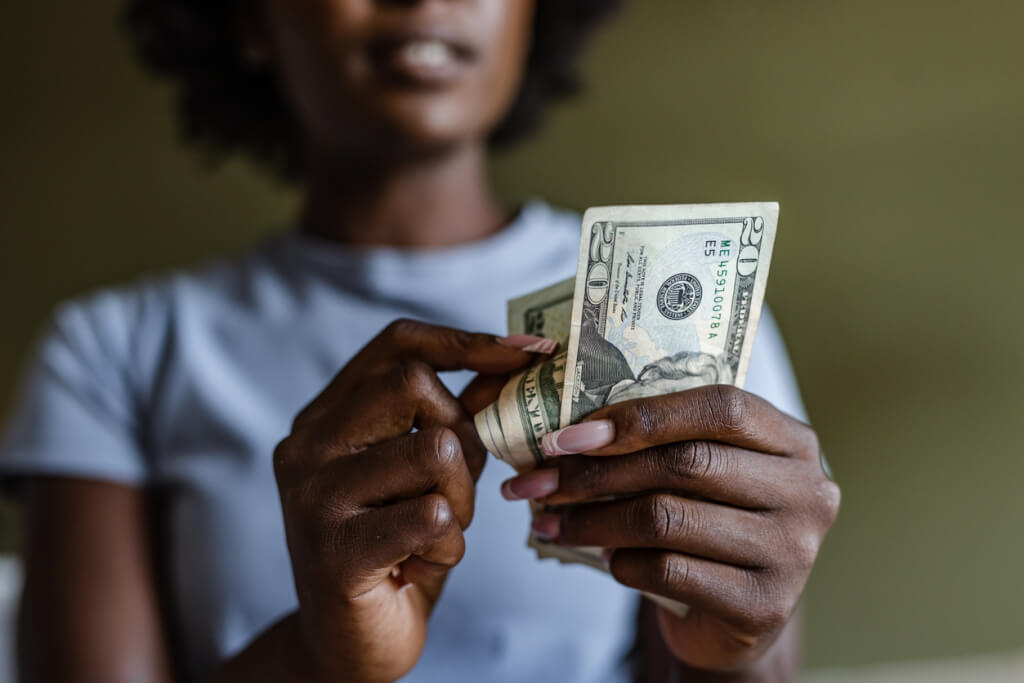Eviction Protection: What New Yorkers Can Count on
'13.07.2020'
Vita Popova
New Yorkers who rent housing are protected from eviction until at least August 5th. But what will happen after this date? Will homeowners be able to evict tenants for non-payment of rent? What rights do tenants have? Answers to these and other questions were published on the website of the publication Curbed ny.

The coronavirus pandemic led to layoffs, leaving most New Yorkers unemployed. Today, many are struggling with the consequences of an unexpected crisis. In a city where tenants make up almost two-thirds of the population, many questions arise regarding non-payment of rent and the consequences, the worst of which is the risk of being left without a roof over your head.
The good news is that some tenants still have protection against eviction, even though Governor Andrew Cuomo has stopped part of his eviction moratorium.
Back in March, the Chief Administrative Justice of New York, Lawrence Marks, announced the suspension of the eviction proceedings. But the loophole allowed landlords to file new cases for a short time. Soon after, Cuomo closed this loophole by blocking the proceedings and imposing a moratorium on evictions throughout the state until June 20.
Then the governor extended this moratorium until August, narrowing the circle of persons covered by the decree. However, on July 6, the governor canceled part of this mandate. Now, in accordance with yet another executive ruling, the freezing of the statute of limitations allowed the Office of Court Administration to continue to suspend the consideration of eviction cases.
At the same time, the governor’s directive canceled the action of protective measures prohibiting the eviction of tenants both in connection with non-payment of rent, and in connection with foreclosure on residential mortgages. Instead, Cuomo relies on the recently enacted Tenant Safe Harbor Act, previously passed in New York City, which has become the epicenter of the pandemic. The law ensures that no tenant who tries to make ends meet in a pandemic will face eviction. Tenants can use this law in court, but it does not prevent new cases from being submitted.
This measure applies to unpaid rental bills accrued between March 7th and the date that is not yet set, when the state removes all restrictions associated with COVID-19 and people can return to their work. Landlords, however, may apply for cash compensation for missed payments for this period.
In short, many tenants have protection against eviction, but to do this they will have to present their arguments to the judge. And even though the city’s housing courts have partially resumed their work, most trials have stalled due to instructions from the judiciary.
On the subject: 7 things New York City tenants need to know during the COVID-19 pandemic
The situation may begin to change from July 27, when the Brooklyn Housing Court will resume face-to-face eviction proceedings filed before March 16. Other areas are expected to soon follow, but the courts have not yet announced the timetable.
At the same time, eviction orders are not executed, and so far, tenants cannot be evicted from their homes legally. This does not mean that some landlords will not try to do this.
In the meantime, tenants continue to call hotlines and contact housing lawyers, asking questions about their rights and often receiving inaccurate information or even threats. If you are also interested in what rights tenants have in New York and how much they are protected from eviction, you will find detailed answers below.
What does eviction proceedings mean to tenants?
The New York Office of Court Administration extended the pause for evictions and related procedures until at least 5 August. This despite the fact that Cuomo lifted restrictions on new eviction cases in accordance with his July executive order.
If you were expecting an eviction case, these proceedings were suspended. If you have recently received an eviction notice, then this alone is not enough for your landlord to evict you; the landlord must receive a court order to legally evict the tenant, even if his rent has expired or he has overdue the rent. Now that evictions are on hold, this court-appointed pause is delaying most trials.
Five New York Housing Courts partially resumed operations at the end of June. Landlords began to send new cases to the courts, but these new cases will not move off the ground before August.
Negotiations to resolve some pending eviction cases are one of the few litigations still pending via Skype. Qualifying cases were supposed to start before the pandemic began, and both sides must have lawyers, but can only participate in settlement negotiations, and judges cannot issue eviction orders.
How does the Safe Harbor Act for tenants affect the situation?
The Safe Harbor Tenant Act, sponsored by Manhattan Senator Brad Hoylman and member of the Bronx Assembly, Jeffrey Dinowitz, prohibits eviction for non-payment of rents as long as the pandemic continues - that is, from 7 March until all restrictions related to the coronavirus are lifted in the tenant's district. However, the tenant must be able to prove to the judge that during this period he suffered from financial difficulties.
It is imperative to understand the following: this law does not abolish rent for the above period. The tenant cannot be evicted because he missed the rent during this time, but the landlord can still apply to the court for cash compensation.
Such a decision, as Patrick Tyrrell, a full-time attorney at Mobil for Justice, points out, can do “great harm” to tenants. They may face not only loss of funds due to non-payment of the lease, but also that a pledge will be imposed on their property.
On the subject: The abolition of rents has put small homeowners on the brink of survival
If they don’t evict me, will I still have to pay the rent?
Yes. The Safe Harbor Tenants Act does not abolish rents. Therefore, if you have the opportunity, you must pay the rent now. Otherwise, the landlord has the right to institute proceedings against you on non-payment of rent.
However, many New Yorkers who have recently lost their jobs are not able to pay. That is why the now inactive moratorium on eviction was introduced. It protects those who are suddenly faced with financial difficulties from the risk of being on the street during a pandemic.
For those who are trying to make ends meet, the City Human Resources Administration may offer some help through the One Shot Deal program. This emergency program can provide qualified New Yorkers a one-time payment that they can pay to your landlord.
Jason Wu, a housing lawyer and trustee of the Bar Association, says that communication can also be the key. That is, you can try to contact the tenant and inform him about your financial difficulties in connection with the pandemic. You may be able to reach an agreement. Here is one of the possible solutions to the problem: you agree with the landlord that when you find a new source of income, then pay him debts.
Can my landlord still sue me for non-payment?
Now that the city’s housing courts have partially resumed work, yes. But these cases were temporarily delayed until at least 5 August. This means that New York homeowners have the opportunity to mail documents that initiate new cases of evicting tenants in five city housing courts.
Although these cases may be instituted, tenants are not being evicted.
My landlord is still threatening to evict me. What should I do?
Andrea Shapiro, program manager for the Met Council on Housing, said the law is now on the side of tenants.
As the city’s housing courts gradually resume their work, some court proceedings begin to resume, but the eviction process is time-consuming, and court evictions are used only in exceptional cases.
If the landlord tries to put you outside by any means - change door locks, take out your things, turn off utilities - you can safely contact the police. Law enforcement officers should be advised that your landlord is engaged in illegal evictions. The illegal eviction of tenants in New York is a criminal offense.
Some homeowners may even resort to intimidation from landlords who are new to their rights. “I have concerns about intimidation and harassment tactics that landlords use that don't really go beyond what is legal, but could potentially lead to harassment,” Wu says. "It is important that tenants know that protection exists."
City Marshal is trying to evict me. Can he do it?
Not. On March 13, the city investigation department notified all marshals that the eviction procedure had been suspended. Since then, this directive has been extended indefinitely. If the marshal tries to execute the eviction order, do not execute it and report it to the Bureau of City Marshals by calling (212) 825-5953.
“Don't make decisions out of fear,” says Susanna Blankley, campaign coordinator for the Right to Counsel in New York coalition. - Know that you have rights; know that you have power. "
I was diagnosed COVID-19, can a landlord evict me because of this?
According to the mayor's office, your landlord cannot ask you to leave the apartment because you have confirmed coronavirus. Regardless of whether you have a right to protection from eviction or not, your landlord cannot discriminate against, harass or threaten eviction due to fear or prejudice associated with a pandemic.
If you experience discrimination or harassment by the homeowner, report it to the city human rights commission. filling out this form.
What happens when these protections against eviction expire?
There is currently no answer to this question. Queens Senator Michael Gianaris previously proposed a bill that would suspend rent for 90 days for residential and commercial tenants affected by COVID-19. The bill was also supposed to provide mortgage benefits to landlords in line with tenant requirements. “We are seeing a housing crisis looming,” Janaris said. "We can either let this happen, or we can create some kind of legal structure and try to soften the landing."
However, the bill was repealed. Instead, state lawmakers approved a measure initiated by state Senator Brian Kavanagh to use federal assistance to provide vouchers to homeowners whose tenants lost revenue during the pandemic. But this help will be unavailable to many who do not meet the income requirements.
Probably the most significant tenant assistance legislative measure that needs to be passed is the Safe Harbor Tenant Act. Though the sponsors of the bill, Hoilman and Dinovic, admit this is only part of the tenant assistance puzzle. "No law alone can solve the eviction crisis - but the Safe Harbor for Tenants Act is one of the most significant steps to tackle the looming wave of evictions," Hoilman says.
According to attorneys and tenant lawyers, more than 50 New Yorkers may be evicted after the protection is removed, which will provoke a wave of displacement throughout the city.
The Housing Justice for All Coalition, which includes the Metropolitan Housing Council and the Right to a Lawyer Coalition, advocates for total rent abolition during the pandemic, urging state to suspend rent payments during the New York health crisis ... “At the very least, the state should extend the governor's initial general moratorium for the duration of the pandemic - and then for at least three months afterward. It would give people more time to get on their feet and understand what's going on, ”says Blankley.
A new state bill introduced by Brooklyn Senator Zellnor Myrie, called the Emergency Housing Stability and Tenant Dislacement Prevention Act, proposes to go even further. This law will prohibit evictions, new cases, and monetary decisions for a year after the state lifts its final restrictions related to the pandemic. “Our community members are already hanging by a thread and will not be able to withstand the instability that eviction will bring,” says Mairi. He added that the bill will serve as "a temporary measure as our economy stabilizes."
At the city level, City Council speaker Cory Johnson, who supports the abolition of rents, has enacted legislation that will effectively stop evictions and collection of debts from both residents and commercial tenants until September 30. The bill also prohibits city marshals and sheriffs from collecting debts and evicting residents affected by COVID-19 until April 2021. This bill has stalled in the Council.
But if New York City wants to recover from this pandemic without deepening the city's homelessness crisis and economic uncertainty, the governor and state legislators must offer more rental assistance and protection from eviction, Wu said. “I think the initial moratorium on evictions was a good first step, providing immediate assistance,” he says. “But this was not a long-term solution. And what is happening with us now is just postponing the solution of the problem to a later date. "







